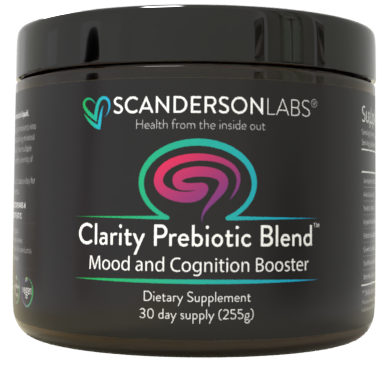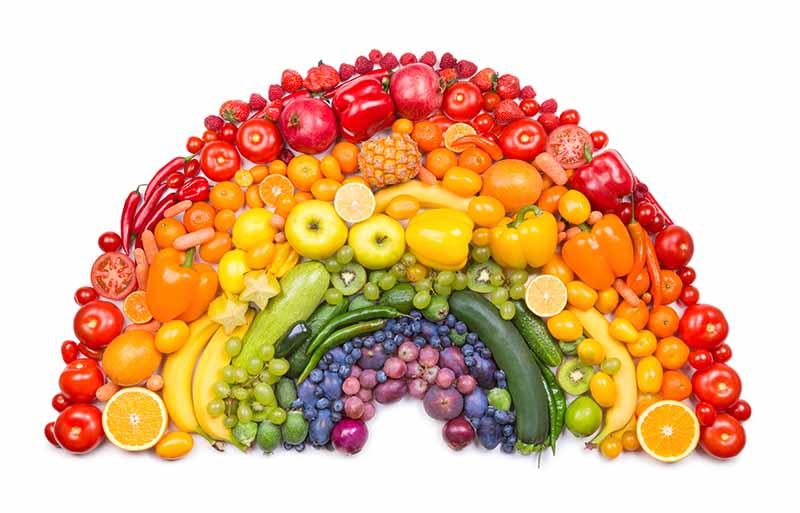The Standard American Diet (SAD) is making us miserable.
What we eat has a huge impact on our moods and cognition.
Let food be thy medicine and medicine be thy food. – Hippocrates
Can food affect your mood? Of course, it can, especially in the short term. Who hasn’t joyfully consumed a candy bar or a bag of cheese nips? It can be the highlight of your day. But these quickie bites may be our undoing. Poor diets mess with our gut, which, amazingly, can lead to depression and anxiety.
Food manufacturers masterfully cater to our taste buds and now, after some 70 years of distributing delicious processed treats, depression is the number-one cause of disability. This may not be coincidental: The standard American diet (SAD) is making us miserable.
How did we get here?
Processed foods represent an inadvertent experiment on the entire population of the world. Food scientists, in cahoots with agribusiness, have succeeded in creating the most addictive foods on the planet, partly by tossing out fiber, which is food for our good microbes, and partly by adding sugar, which is food for our bad microbes. This is done to create a product that is practically indestructible and can stay “fresh” in the middle of the store for years.
To make it look more enticing, processed food is often bleached and then dyed. That makes great eye-candy, but dyes can alter your microbiota. Emulsifiers keep food from separating, but some of them harm the microbiota and can lead to inflammation. Even preservatives, which prolong the lifetime of the product and sound great, can negatively impact the gut. The farther we get from real food, the more problematic it becomes. Perversely, we are busily exporting this epic gastronomic failure to the rest of the world.
The tragic tale began with some bad science in the 1960s that unfairly demonized fats. Based on that misinformation, the government then published a food wheel that was created by the USDA. Note that the USDA is not a health agency, but an agriculture agency. It represents the producers, not the consumers. The food wheel directed us to consume lots of cheap refined grains, especially corn. The food wheel was the precursor to the famous, and similarly flawed, food pyramid, and it was a big hit with grain farmers.
Companies quickly figured out how to game the system to produce almost everything using government-subsidized grain, especially corn. That, almost inevitably, led to replacing fat with syrup and carbs.
That sounds like a conspiracy, except that it was all done with the enthusiastic encouragement of the public. We lapped it up and we gave no thought to what it was doing to our gut microbes. And really, why should we be worried about gut microbes in the first place?
The mood starts in the gut
It is completely unintuitive, but it turns out that many of our mental issues start in the gut. Not all depression is gut-oriented, of course. Life can throw curveballs and mess with our minds—and there can be strictly medical reasons as well. But we’ve known for centuries that gut problems can lead to mental anguish, psychosis, and anxiety.

BUY ON AMAZON
Surprisingly, it is fairly recently that we have really understood the beneficial aspects of our gut microbes. They form a key part of the gut-brain axis, which is rapidly changing the way we look at how our emotions and behavior are regulated.
You’ve heard of probiotics. But have you heard of psychobiotics? These are probiotics that improve your mood. Psychobiotics include bacteria like those found in fermented foods including yogurt, kombucha, kefir, and kraut.
Psychobiotics also include complex sugars called fiber or prebiotics. Beneficial bacteria simply love fiber, so the psychobiotic label also includes prebiotics.
We’ve been refining fiber out of food for the last 70 years. When we talk about processed food, that’s the main point: getting rid of fiber makes food prettier and easier to chew. This, however, should not be the criteria for food products. Health would be a better determinant.
You should get at least 30 grams of fiber per day, but only one in 20 Americans can manage that. The rest of us are eating delicious white bread, soft cakes, and other fiber-free foods, starting with breakfast bagels and moving on to late-night ice cream.
We eat like children, scarfing the yummy treats and promising to eat some broccoli tomorrow. It’s killing us. It’s making us diabetic, overweight, anxious, and depressed. But it sure tastes good.
The most unusual organ
We all have around three pounds of microbes in our gut. Why do we tolerate this alien invasion? It’s simple: We have no choice. Microbes are going to follow the food, no matter what we do. We have, over the millennia, arrived at a truce. The good microbes keep out pathogens, and in return, we host a continuous buffet.
The microbes in our gut act as the royal guardians of immunity. Before our immune system knows that pathogens are even in the neighborhood, our gut microbes are already fighting back. Most pathogens are destroyed quickly with no fuss, because we have 100 trillion microbial bouncers in our gut, ready to deal with unlucky intruders.
But if we don’t feed our guardian microbes properly, they won’t be able to mount an effective counterattack. If pathogens gain a foothold, they can disturb the lining of our gut. That lining is one cell thick, a gossamer barrier against troublemakers. Pathogens can burrow and dig into this lining, allowing toxins or bacteria to leak into our bloodstream. Our heart then obligingly pumps those potential poisons to every organ in our body, including our brain.
The root of all evil
Scientists now believe that almost all inflammatory diseases start in the gut, including diabetes, heart disease, arthritis, Parkinson’s, Alzheimer’s, and mental issues like depression and anxiety. Beneficial bacteria in your gut are therefore of utmost importance to your overall health and mood.
Psychobiotic bacteria even produce neurotransmitters like dopamine and serotonin, two popular targets of antidepressants. So, while those short-term fast foods can provide a jolt of joy, the long-term effect is a rotten set of microbes in your gut, unable to defend against the bad guys, and ineffective at lifting your mood.



